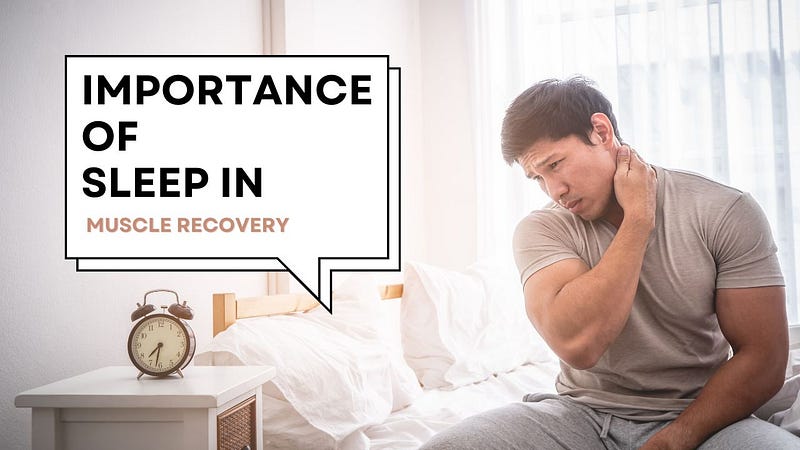
Many beginners underestimate the power of sleep for fitness and muscle recovery. Sleep isn’t just about feeling refreshed; it’s a biological necessity for muscle repair, hormone regulation, and overall physical performance. In this post, we’ll delve into the science behind sleep and how prioritizing those precious nighttime hours can unlock your true fitness potential.
So you’ve hit the gym in Madurai, perhaps you’re a regular at Zym Mechanix Gym or another local favorite. You’re putting in the hard work, sweating it out, and pushing your muscles to their limits. But are you giving your body the one crucial element it needs to maximize those gains: quality sleep?
Why Sleep Matters for Muscle Recovery
After an intense workout, microscopic tears develop in your muscle fibers. This breakdown is actually a good thing — it’s a sign your muscles are adapting and getting stronger. However, these tears need time to mend, and that’s where sleep comes in.
During deep sleep, your body releases a surge of human growth hormone (HGH). HGH is like a natural repair crew, working overtime to rebuild and strengthen your muscles. Skimp on sleep, and your HGH production dips, hindering muscle recovery and potentially slowing down progress.
Sleep and Muscle Growth: A Hormonal Symphony
Sleep isn’t just about HGH. It also regulates other hormones crucial for muscle growth and overall fitness. Here’s a closer look:
- Testosterone: This hormone plays a key role in muscle building and strength gains. Sleep deprivation can lead to a decrease in testosterone levels, impacting your ability to build muscle.
- Cortisol: Often referred to as the stress hormone, cortisol can break down muscle tissue if chronically elevated. Deep sleep helps regulate cortisol levels, creating an optimal environment for muscle growth.
Beyond Muscle: How Sleep Benefits Overall Fitness
A good night’s sleep isn’t just about building muscle. It has a domino effect on your entire fitness journey:
- Improved Energy Levels: Deep sleep replenishes your energy stores, leaving you feeling more energized for your next workout.
- Enhanced Performance: Sleep deprivation can lead to decreased reaction times, coordination, and overall athletic performance.
- Reduced Injury Risk: When you’re well-rested, your focus and reaction times are sharper, potentially reducing the risk of exercise-related injuries.
- Mental Toughness: Sleep deprivation can impact your mood and motivation. Getting enough sleep can enhance your mental fortitude and help you stay committed to your fitness goals.
How Much Sleep Do You Really Need?
The National Sleep Foundation recommends that adults aged 18–64 get 7–9 hours of sleep per night. However, individual needs may vary. Pay attention to your body’s cues. If you’re constantly feeling tired and sluggish, you might need to adjust your sleep schedule to find your sweet spot.
Creating a Sleep-Friendly Routine
Developing healthy sleep habits is key to reaping the benefits of a good night’s rest. Here are some tips:
- Establish a Regular Sleep Schedule: Go to bed and wake up at consistent times, even on weekends. This helps regulate your body’s natural sleep-wake cycle.
- Create a Relaxing Bedtime Routine: Wind down before bed with calming activities like reading or taking a warm bath. Avoid screen time for at least an hour before sleep.
- Optimize Your Sleep Environment: Make sure your bedroom is dark, cool, and quiet. Invest in blackout curtains, a comfortable mattress, and pillows that support your neck.
- Limit Caffeine and Alcohol: Both substances can disrupt your sleep cycle. Avoid them close to bedtime.
- Regular Exercise: Regular physical activity can improve sleep quality. However, avoid strenuous workouts too close to bedtime, as they can have a stimulating effect.
Conclusion: Sleep — Your Unsung Fitness Weapon
Sleep is an often-overlooked yet vital component of any fitness regimen. By prioritizing quality sleep, you’re giving your body the tools it needs to recover, rebuild muscle, and perform at its peak. So, the next time you’re tempted to burn the midnight oil, remember: a good night’s sleep might be the secret weapon you need to unlock your true fitness potential.
Comments
Post a Comment